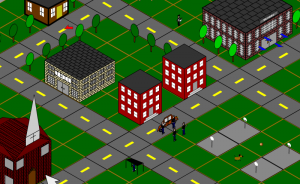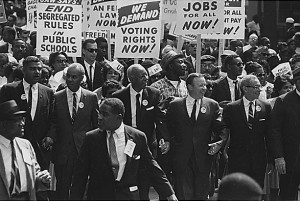My Ford project was working with Professor Tom Ellman of the Computer Science and Media Studies Departments on Seasons of Freedom, an educational role-playing game about the African-American Civil Rights Movement.

In this game, the player assumes the role of two characters from different time periods: a teenager living in a modern-day city loosely based on Poughkeepsie, and a civil rights activist working in a town located in the Deep South during the early 1960’s. In presenting these two parallel worlds, our goal is simply to raise questions: How has racism changed since the Civil Rights Movement? Are there residual issues of race and equality that still need to be dealt with? Have subtler, more complex forms of racism emerged?
At first glance, it might seem insensitive to represent a struggle as visceral as the Civil Rights Movement with a game. The word “game” provokes an image that is whimsical at best, insensitive and violent at worst. But we believe that an interactive medium confers several advantages to our project. In games, players take on active roles in stories. They can take actions and observe the consequences of those actions on the world in which they are situated.

This property of games lends itself well to telling the story of a civil rights worker. When any civil rights worker tried to organize a movement in the early 1960’s, they were faced with particular dilemmas. Which demographic groups in my town do I attempt to recruit for help? How do I identify the local leaders of my community and persuade them to support the movement? How do I respond to violent responses towards black mobilization? Should I urge someone to join my movement if they could suffer dire economic or physical consequences? In presenting players with multiple paths for action, we hope that players will grapple with these issues more critically than if they were passively observing history.
– Luke Gehorsam, Class of 2014

